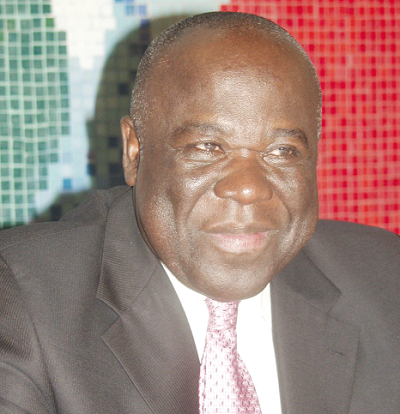A Business executive and statesman, Sir Sam Esson Jonah, has bemoaned the income disparities between elected officials and government appointees, on the one hand, and technocrats and public servants, on the other.
He called for an attractive compensation system for civil and public servants urgently to help attract and retain the best workforce for the public sector.
In an exclusive interview with the Daily Graphic, Sir Jonah explained that although both groups worked for the same state, the gap between their remunerations was wide, to the extent that it risked discouraging young professionals seeking careers in the public sector.
The former President of AngloGold Ashanti said the situation was also demotivating for existing civil and public servants and should, therefore, be addressed with urgency, given that the government was still the largest employer in the economy.
Interview
Among other things, the interview discussed the need for a national dialogue to explore solutions to the challenges of the COVID-19 pandemic, how to preserve the integrity of the three arms of government and constitutional reforms in response to emerging challenges.
Singapore examples
Sir Jonah, who is the Chancellor of the University of Cape Coast (UCC), said Singapore was noted to have used an attractive compensation system to revamp its public sector, which later became the anchor of its meteoric rise.
He said Ghana should aim to replicate same by instituting a compensation system that could rival that of the private sector to ensure that the best in the country worked for the public sector.
"The public sector provides goods and services for the rest of the economy to function. If they are not well resourced, motivated and properly compensated, they will not give of their best and the rest of the economy will suffer," he said.
Low pensions
Sir Jonah added that the low salaries paid to public servants also led to low pensions during their retirement.
That, he said, had a direct negative correlation with productivity, stating that "when public servants in their prime observe their seniors go home with regret over their low pensions, it teaches the wrong lessons."
He said he was aware of a professor of Medicine who spent more than 40 years to train medical doctors, yet was currently receiving a monthly pension of about GH¢1,500 due to his relatively low basic salary.
"This is a professor who headed two top health institutions before going on retirement, yet look at the salary he was earning and look at the pension he gets," he said.
"But look at Members of Parliament (MPs) and members of the Executive. The MPs earn more than GH¢11,000 as basic salary, and after every four years, they get ex gratia for both returning and retiring ones," he said.
According to him, an MP who recently served for four years was entitled to about GH¢500,000 as ex gratia.
Equity
Sir Jonah said members of the Executive also enjoyed similar high pay, creating a disparity that was not nationalistic.
"We cannot run a country like this, where politics is the most financially rewarding career choice by such a huge gap, at the expense of career choices such as teaching, medicine and entrepreneurship. There is the need to find a more equitable reward mechanism for our public service, including those working in the Legislature, the Executive and the Judiciary," Sir Jonah said.
SOE jobs
Sharing his views on how public sector institutions, including state-owned enterprises (SOEs), could be revitalised to spur economic growth, the business executive said the politicisation of senior management and board appointments into such entities was counterproductive.
He said it created a lack of continuity and institutional experience at the highest levels of decision-making within those organisations and that ultimately impacted negatively on the ability of such institutions to formulate long-term business strategies.
“The independence of the board of directors and their ability to be unbiased in their supervisory and governance roles within SOEs can also be called into question when their appointments lack independence and are rewards for political affiliations," Sir Jonah, who chairs the boards of a number of companies across the world, said.
He observed that the combination of under-compensated and demotivated career civil servants, led by well-compensated political appointees at senior management and board level who had short-term focus, had led to SOEs becoming a breeding ground for corruption.
Sir Jonah stated that the arrangement also made the entities vulnerable to be used for the promotion of transactions that did not serve the national interest.
Repositioning
The leadership consultant also noted that the SOEs needed to be "repurposed and led by qualified professionals" to enable them to act in the national interest.
He said when that was done right and in time, the entities would become potential engines of growth for the country in a post-COVID-19 economy.
Sir Jonah also noted that SoEs the world over played strategic roles, and that the introduction of a culture of meritocracy, fair and market-related compensation into them and the public service would help attract and retain the best talent in their workforce.
"There is no place with a greater need for the best talent and peak performers than the public service and SOEs. If the nation is to achieve its developmental goals in the competitive post-COVID-19 global environment, then we must reform these things," Sir Jonah said.

